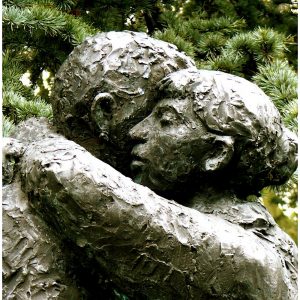Homeopathic medicine is an alternative medical system that aims to promote the bodys ability of self-healing. It stimulates the body to heal itself through very low dosages of highly diluted natural substances. More commonly known as homeopathy, the term comes from the Greek words homeo and pathos, which means similar and disease, respectively. This method was developed about three centuries ago by Samuel Christian Hahnemann, a German doctor.
Homeopathic medicine works under two principles: like cures like (the principle of similars) and law of minimum dose (principle of dilutions). According to the first principle, an ailment can be treated by a substance that causes the same symptoms in healthy people. For example, if the symptoms of cold are the same with poisoning due to mercury, then mercury will be used to cure the cold. The second principle states that the smaller dosages of a substance are, the more effective they are in treating diseases.
Homeopathic remedies involve a process called potentization in which substances are diluted one by one and shaken very well in between the dilutions. This process transfer some energy or essence from the original substance to the dilution, thus stimulating the bodys ability to heal on its own. Homeopathic remedies use substances in highly diluted forms. Usually, these are made up of one part of the substance to about 1,000,000,000,000 parts of water.
Today, homeopathic medicine continues to be used for preventing and curing a wide range of acute and chronic diseases such as headaches, fever, colds, asthma, allergies, depression, skin rashes, digestive problems, chronic fatigue syndrome, and ear infections. Even serious medical conditions such as diabetes and cancer can be treated with homeopathic remedies, though these illnesses need longer treatment time. Despite its being an alternative medical treatment, homeopathic medicine has been widely practiced. In the United States, homeopathic medicine was used by about 900,000 children and 3.9 million adults in 2006 alone.
Unlike traditional medicine, homeopathic treatments are tailored for different individuals, even those with the same condition. Simply put, homeopathic medicine treats the person, not the diseaseso one medication may not treat two persons with the same disease. Using this therapeutic method, homeopathic doctors treat people based on their body type, health and genetic history, and current emotional, physical, and mental conditions. Patients who undergo homeopathic treatment are required to follow a strict diet and avoid stimulants such as strong tea, coffee, alcohol, and nicotine that affect the potency of the medication. Also, the medicines should be taken before meals. The healing process is delayed if the patient fails to follow the diet and restrictions involved in the homeopathic treatment.
Homeopathic treatment uses various medicines derived from animals, plants, minerals, and other substances. Some of the common sources of homeopathic medicines include the following:
1. Plants – onion, cactus, belladonna, capsicum, etc.
2. Minerals – arsenious acid, nitric acid, iron phosphorous
3. Animals – snake poisons
4. Substances – milk, sand, etc.
Some people may have doubts about homeopathy. But theres no basis to such doubts because homeopathic medicines are harmless and have no side effects.




